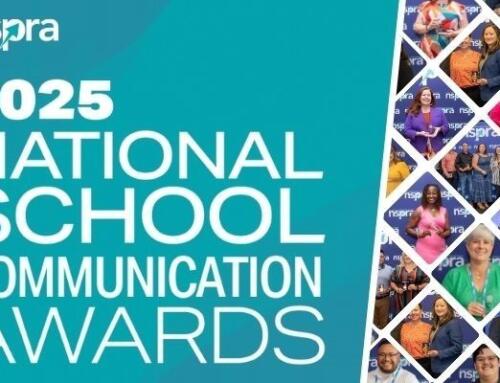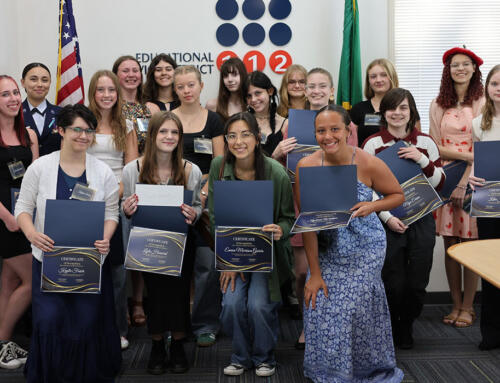“If you want to go fast, go alone. If you want to go far, go together,” Shane Gardner, Evergreen Public Schools Manager of School Safety & Security, emphasized. His statement echoed the goal of Prevent Coalition’s “It’s Not Just Vaping: Trends Gaining Steam Among Youth in Clark County” event. On January 30th, the coalition brought together diverse sectors of the community to share their experiences and perspectives on youth vaping.
Gardner moderated the conversation with panelists:
- Deputy Brendan McCarthy, School Resource Officer
- Deb Drandoff, Director of Prevention and Youth Services
- Madison Langer, Tobacco Free Kids Youth Ambassador
- Deputy Brendan McCarthy, School Resource Officer
- Sharice Lee, Student Assistance Professional
- Maggie Munoz, High School Student, Speech and Debate and Key Club Officer
Before becoming a prevention advocate, Madison Langer used vape devices. Langer, a varsity gymnast at the time, saw her talented and athletic gymnast friend vaping regularly. Langer heard it was harmful, but she looked up to this friend who performed well was using, so “it couldn’t be that bad.” Langer shared she only realized the harm later, when she tried to quit.
Both youth panelists explained how easy it is accessing vape devices even though they’re under eighteen. “I would trade doing math homework for vape pods, or buy them (food from) Taco Bell,” Langer revealed. Maggie Munoz echoed, “I see a lot of youth on Snapchat post when they have (vape) products to sell to their friends,” adding youth also post updates when security guards are present as a warning not to bring them to school that day.
An audience member mentioned news outlets highlighting vape devices as being effective at helping adults quit smoking cigarettes. Deb Drandoff responded, “These are two different issues. Youth aren’t starting with cigarettes then trying to quit. They’re going straight into vaping.”
During the event, panelists explained why adults are concerned. Vape devices contain high concentrations of nicotine, a highly addictive substance. When chemically tested, some vape juice pods labeled nicotine-free were found to contain nicotine. Vape juice pods also contain elements that change upon being heated by the devices, making them unsafe; like diethylene glycol, formaldehyde and propylene glycol.
Nicotine impacts a young, developing brain differently than it does an adult’s, and there is a lack of education and awareness available about potential health impacts. Studies show the majority of youth are using multiple substances, not just vaping, and they’re getting it from older peers who share or sell to them illegally.
Concluding the event, panelists shared their most important takeaways:
- “Be open to conversation. Don’t go to your kid and demand to know if they’re vaping then ground them. Be open to discussing with them and why they’re using. Be a source of comfort and a person to talk to,” Maggie Munoz urged audience members.
- “We need to start as early as we can with kids,” said Sharice Lee.
- “Adults can reach out. Every kid is one supportive adult away from achieving success. Believe in them and help them get through it,” Brendan McCarthy advised.
- Madison Langer shared, “I will always be honest when speaking to kids, educators or parents. We need open, honest education because drugs are changing quickly and we need to change how we have conversations.”
- Deb Drandoff stated, “There are policies you can discuss with your legislators, like Washington21.” She added, “Some see this as a consequence and punishment issue but it’s a public health issue and we should see it as youth needing help.”
- “This is our community. We can make a difference. I challenge you to have one conversation with someone about what you learned,” Shane Gardner encouraged.
News outlets covering the event include:
- KATU Channel 2 News article and interview
- Clark County Today article




 ESD 112 equalizes educational opportunities for learning communities through innovative partnerships, responsive leadership, and exceptional programs.
ESD 112 equalizes educational opportunities for learning communities through innovative partnerships, responsive leadership, and exceptional programs.